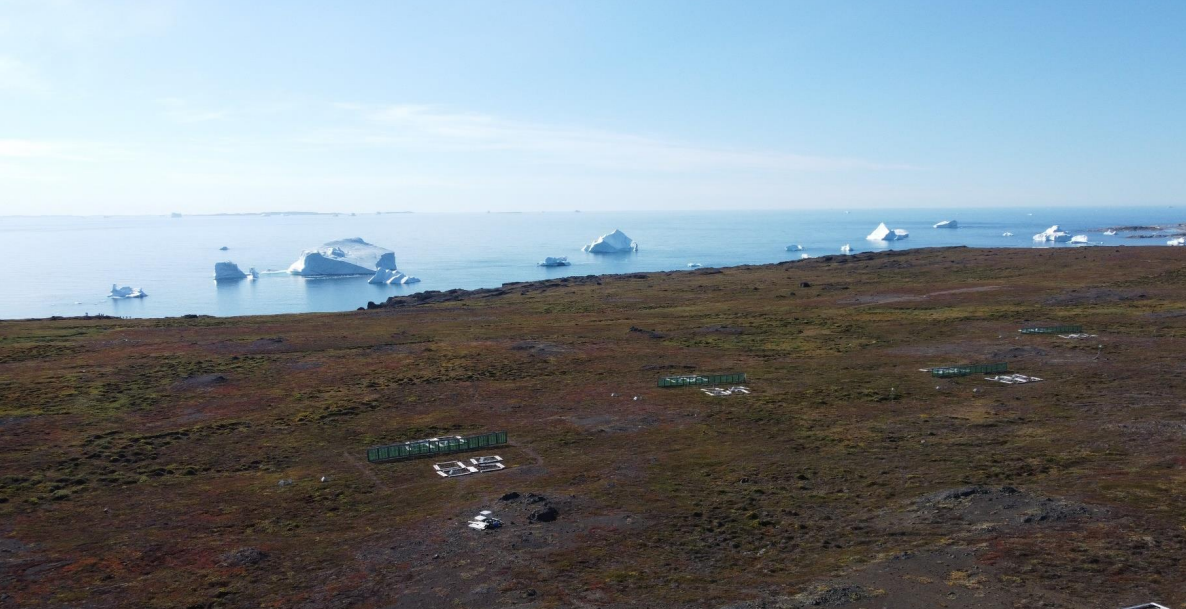Universitetsavisen
Nørregade 10
1165 København K
Tlf: 21 17 95 65 (man-fre kl. 9-15)
E-mail: uni-avis@adm.ku.dk
PhD thesis defense
PhD thesis defense — Lena Hermesdorf 2 OCT
Date & Time:
Place:
'Rød Stue' area 6 first floor, Department of Geosciences and Natural Resource Management, Øster Voldgade 10, 1350 Kbh K
Hosted by:
Geography Section
Cost:
Free
Lena Hermesdorf defends her thesis,
Climate change effects on the carbon balance in an arctic tundra plant-soil system
– A thesis of snow and fire
Supervisor:
Professor Bo Elberling
Assessment Committee:
Professor Lars Kutzbach, Universität Hamburg – Germany
Associate professor Margareta Johansson, Lunds Universitet – Sweden
Professor Thomas Friborg (chair), IGN
Summary:
The Arctic is experiencing rising temperatures, changes in precipitation patterns, and an increase in climate change driven events, such as wildfire. An increase in both summer temperatures and snow may positively and negatively affect the carbon (C) pools and carbon dioxide (CO2) dynamics in the plant-soil system and are therefore expected to vary across the arctic tundra ecosystems. Higher temperatures during the growing season could promote plant growth and thus, CO2 uptake and C gain, and accelerate respiration processes, leading to increased C losses from the ecosystem into the atmosphere. Additional snow is expected to increase winter soil temperatures due to the insulating effect of the deepened snow cover enhancing soil processes such as soil C decomposition and soil nitrogen (N) cycling rates, which could either increase soil N nutrient availability in the following growing season or deplete soils for labile C. The long-term effects as well as the effects of the combination of summer warming and snow addition on C dynamics in a well-drained tundra ecosystem remain largely unknown. The frequency of wildfires in the Arctic is projected to increase due to warmer and drier summers. Fires are disruptive forces causing an immediate release of large amounts of CO2, with potentially large effects on the ecosystem processes and, consequently, the greenhouse gas (GHG) balance.
This thesis addresses the effects of increased summer warming, deepened snow, and fire individually and (in part) in combination on the C dynamics in arctic tundra ecosystems. The work is based on field experiments in a well-drained tundra ecosystem on Disko Island, West Greenland. The short- and long-term effects on in situ CO2 fluxes and long-term effects on C pools following summer warming and snow addition were assessed using a multi-factorial snow fence experiment. In situ GHG flux measurements were used to investigate the immediate and short-term effects of experimental fire on the GHG balance in a tundra ecosystem in ambient and under warmer conditions.
This work demonstrates that nine years of increased summer temperatures in a well-drained tundra ecosystem led to increased aboveground biomass and a gain in soil C pools due to increased gross ecosystem photosynthesis (GEP) in the long-term, despite significantly altered ecosystem respiration (ER) in the short- and long-term. These changes were dominated by the positive responses to warming of the deciduous shrub Betula nana. Snow addition had no significant carry-over effect on summer CO2 fluxes in the short- and long-term but led to significantly lower aboveground biomass. The combination of snow addition and summer warming turned the well-drained ecosystem into net summer CO2 sources. However, the significant increase in GEP in the long-term weakened the source capacity, yet it resulted in lower soil C pools in the bulk soil fraction after nine years of treatments.
The combustion of all aboveground vegetation by the experimental fire turned the tundra ecosystem immediately into significant net CO2 sources for at least two years following the fire, which was less temperature sensitive than the undisturbed control ecosystem. The effects of a low-intensity fire on methane (CH4) and nitrous oxide (N2O) were limited to immediately after the fire and no significant changes in the short-term.
Altogether, this highlights the complex heterogeneous responses of a well-drained tundra ecosystem caused by different aspects of climate change as well as the importance of multi-year long-term studies.
A digital version of the PhD thesis can be obtained from the PhD secretary phd@ign.ku.dk
